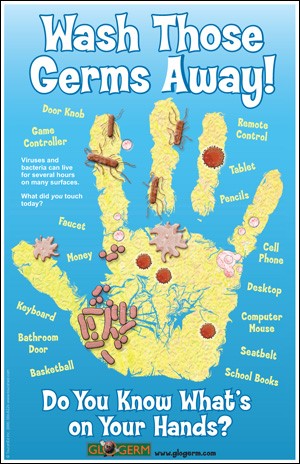Hygiene in School
Message from the Headteacher, Miss Gowan:
LDA is following advice from Public Health England regarding the global outbreak of coronavirus. Please be assured we take the health & safety of our pupils & staff very seriously. We will use the school website & the Twitter account to keep you fully updated when matters arise.
Please follow the link for more information: https://www.gov.uk/guidance/coronavirus-covid-19-information-for-the-public#what-to-do-if-you-have-symptoms
Please click here to read parental letters regarding coronavirus (COVID-19)
(March 2020)

Whenever children are together, there is a chance of spreading infections. Even with preventative measures in place, it is likely that some infections will be spread. For many of these infections, a child is contagious a day or more before he or she has symptoms and so others will never know when another child is passing a virus or bacteria. Fortunately, though, not all illnesses are contagious.
Hand washing is a powerful antidote to illness. You might not have given it much thought. It should be part of your routine and done frequently. Hand washing may be the single most important act anyone can do to prevent the spread of germs.
As early as possible, a child should get into the habit of washing hands often and thoroughly. All day long, your child is exposed to bacteria and viruses. Once their hands pick up these germs, they can be quickly infected by:
- Rubbing their eyes
- Touching their nose
- Bringing their fingers into contact with their mouth
The whole process can happen in seconds, and cause an infection that can last for days, weeks, or even longer.
Hand washing can stop the spread of infection. Get into the habit of washing your hands:
- Before eating (including snacks)
- After a trip to the toilet
- Coming in from break times
- After touching an animal
Guidance on Infection Control in Schools:
School prevent the spread of infections by promoting and supporting routine immunisations, high standards of personal hygiene and practice, particularly handwashing, and maintaining a clean environment. Via form tutor time and assemblies school promote the following:
- When coughing or sneezing, ensure you cover your mouth and use disposable tissues which are then disposed of in the bin. Not doing so can cause germs to spread up to 30 metres
- Wash your hands after sneezing or coughing if the hands have been used to cover the mouth
- When coming into contact with someone who is already unwell – wash your hands
- Use the soap dispensers available in all toilets and wash hands thoroughly
- Spitting should also be actively discouraged
- Avoid sharing cups, eating utensils, towels, toothbrushes and brushes/combs with others
By following a few simple rules, you can help keep yourself germ free.
Have a look at the ‘Wash Those Germs Away’ poster below. You will be amazed at the number of everyday items that leave our hands covered in germs.
In the rare case of an outbreak of any infection, the school will follow Public Health England, Department for Education and Knowsley Council guidance.
